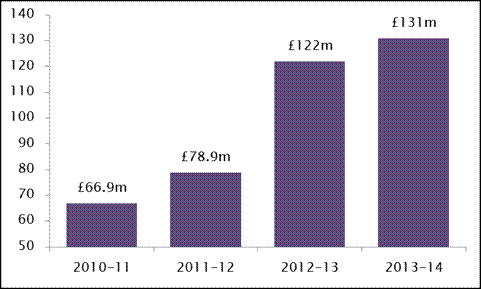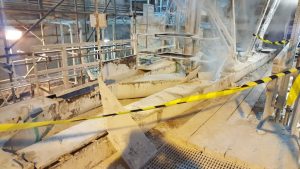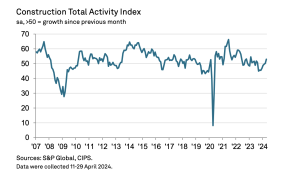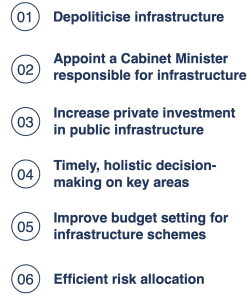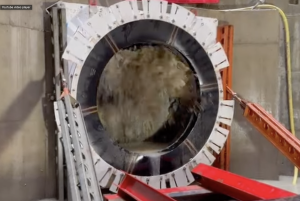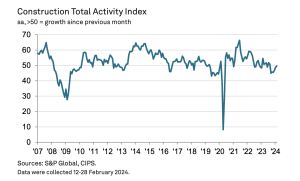HMRC tax yield from investigations into construction companies hits record £131m
This post has already been read 1263 times!
A report from nopalaver group has shown that construction companies are being looked at by HMRC concerning the guidelines of employment/self employment as construction companies prefer to employ workers as self employed because of the nature of the construction industry.
The report nopalaver group is as follows.
HMRC’s yield from tax investigations into the construction sector jumped by 7% to a record £131 million last year*, up from £122 million the year before, says NoPalaver Group, a leading provider of accounting services to contractors.
NoPalaver says that HMRC’s crackdown on construction companies paying their workers as self-employed and not PAYE is part of its wider effort to boost its tax revenue through compliance work. It sees the construction sector as an easy target to generate more revenue.
According to NoPalaver, HMRC is forcing construction companies to justify their workers’ self-employed status. This has caused problems for many construction companies, as they frequently lack the paperwork to prove that their workers are genuinely self-employed.
NoPalaver explains that working arrangements in the construction sector are complex. Self-employed subcontractors move between jobs regularly. Erratic working patterns like this create lots of opportunity for mistakes with paperwork and tax status.
Graham Jenner, Director at NoPalaver comments: “Construction work naturally attracts high numbers of self-employed workers.”
“If the company doesn’t have the paperwork to prove that their employees should be treated as self-employed, the company could face an investigation by HMRC.”
NoPalaver explains that not having the correct paperwork can often lead to a penalty worth the equivalent of six years’ worth of PAYE taxes and national insurance payments, plus interest and up to 100% of the tax in penalties.
“HMRC has been suspicious of self-employed construction workers for some time. It is clamping down on companies hiring individuals it feels don’t meet its strict criteria and I would expect them to continue to do so as it seeks to generate more revenue,” adds Graham Jenner.
HMRC sets employment intermediaries in its sights
NoPalaver says that as well as targeting construction businesses directly, HMRC is now also turning its focus to the employment intermediaries who help to process the pay of contractors.
Under the new rules, the previous advantages to the construction business of using an employment intermediary no longer exist. This is because they no longer shield the construction business from enforcement action by HMRC if it emerges that the business should have been paying its workers through PAYE.
In a recently published update** (September 4 2014), HMRC has confirmed that from April 6 2015, employment intermediaries will have to start providing quarterly reports explaining why workers on their pay roll are not using PAYE.
Graham Jenner says: “HMRC is ramping up its efforts to clamp down on tax-evasion in the construction sector. It has long sought to force self-employed construction workers to be classified as employees and is now heaping the pressure on employment intermediaries in its effort to treat self-employed workers as employees for tax purposes.”
“These changes to the rulebook make it even more important for construction companies, employment agencies and contractors to ensure their tax arrangements are in order and fully compliant with new legislation.”
“Failing to comply with HMRC could result in a big tax bill and a loss of flexibility in employment, which is vital for construction workers.”
*Year end March 31st 2014
For more information please visit www.nopalaver.com

